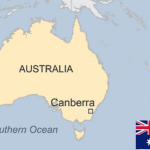Key findings from a project done from data analysis on stillbirths has been officially launched to help improve evidence-based decisions towards the reduction of preventable stillbirths.
Experts at the event believe the speed project will help to advocate for policies, system, and process changes to reduce stillbirths in Nigeria.
Stillbirths come with a traumatic and long-lasting impact on women and their families, who often endure profound psychological suffering and sometimes stigma in their communities.
50 percent of stillbirths in sub-Saharan Africa and Central and Southern Asia occur during labour
In Nigeria, more than four hundred thousand still births occurred between 2014 and 2023.
The rate of stillbirths in the country is 24 per 1000 live births and is currently twice the expected target per every newborn action plan global target of 12 per 1000 live births by 2030.

To reduce this burden, experts are seeking an improvement in Nigeria’s capacity to use data of registered stillbirths for decision making speed project through the unveiling of a stillbirth dashboard
The one-year speed project is a vital strategy to translate stillbirths’ data for policy impact through 3 key outputs.
It will combine a multi sectoral approach which will drive data use and bridge policy gap by making data on stillbirths more visible and accessible for evidence-based decision-making.
The Institute of Human Virology Nigeria began implementing the Improving Nigeria’s Capacity to Use Data on Registered Stillbirths for Decision-making & Planning from September 2023.
The stillbirth dashboard has now been launched on the website of the federal ministry of health and social welfare.














